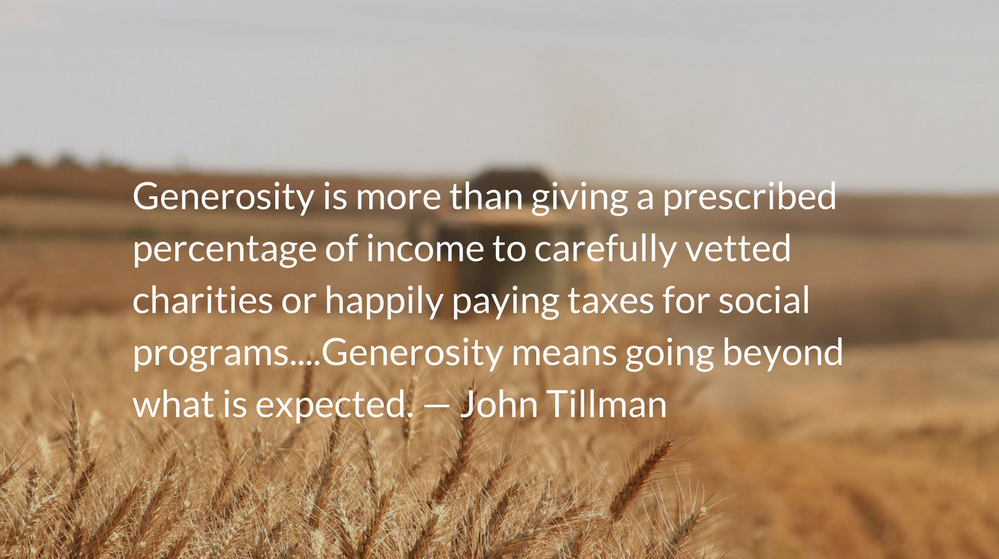Scripture: Ruth 2.20
He has not stopped showing his kindness to the living and the dead.
Reflection: Redemption at Work in Generosity
By John Tillman
Our culture is obsessed with romance. (To the tune of thirty percent of the fiction market and over a billion dollars a year) However, as tempting as it is to interpret Boaz’s actions in Ruth’s second chapter to an instant romantic attachment, gleaning doesn’t make for a good “meet-cute.”
Gleaning was a part of the social safety net put in place by the communal regulations of the Old Testament covenant. Ruth’s story puts a relational microscope on this practice.
Landowners, the CEOs of Israel’s agrarian society, had a holy responsibility to not wring every grain of profit from their fields—to not harvest the edges and corners of the field, and to not pick up dropped grain or return for forgotten sheaves. This runs counter to our modern business mentality of efficiency at all costs and it seems that the community of Bethlehem wasn’t fully living up to these ideals either.
Boaz’s warnings not to glean elsewhere and his assurances of good treatment in his field are strong indicators to us that gleaners were seldom well treated. His statement, “I have told the men not to lay a hand on you,” is a particularly telling hint at the kind of treatment that Ruth was likely to get elsewhere and may indeed already have received before Boaz arrived.
Then as now, the marginalized are the easiest targets for harassment and violence, and it is up to people of faith to intervene.
The redemptive view of work, profit, and charity in Ruth, asserts that ownership is custodial—that the fruits of investment are meant to benefit the entire community. The initiative to provide assistance must sync up with the initiative to seek it. Systems and programs for the marginalized are nice and societies should have them. But compassion goes further.
Living generously is more than giving out of “our” profit that we have harvested. It is recognizing that the profit never belonged to us. It is more than giving a prescribed percentage of income to carefully vetted charities or happily paying taxes for social programs. Generosity is making room in our lives, our fields, and our communities for the marginalized and the needy. Fulfilling religious or social law is compliance. Generosity means going beyond what is expected.
The Call to Prayer
Let the righteous be glad and rejoice before God; let them be merry and joyful. — Psalm 68.3
– From The Divine Hours: Prayers for Summertime by Phyllis Tickle.
Full prayer available online and in print.
Today’s Readings
Ruth 3-4 (Listen – 5:24)
Acts 28 (Listen – 4:56)






